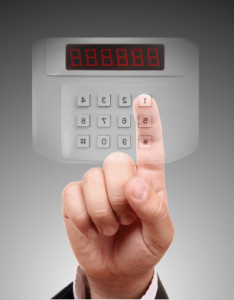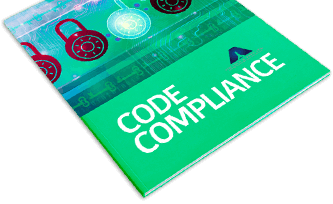In the world of increasing threats, keeping your facility and staff safe is a critical issue. Thankfully, advances in technology have made commercial access control systems and options flexible, scalable and affordable.
Analyzing Your Access Control Concerns
The first step in designing the right access control system for your facility is to determine three key factors: possible threats, required levels of security and ease of use. Keeping these three areas in balance will allow your facility to be a welcoming environment for visitors, a comfortable space for your employees, and a safe place for all your people and property.
Possible Threats
 In designing your commercial access control system, it is important to gather information from several parts of your organization. Your security personnel will be the biggest asset in determining what areas of your facility need the most protection. They should examine what property is most vulnerable to theft, either physical or technological. They should also look at what personnel are most vulnerable to outside threats. As they make these determinations and look at the structure of your overall facility, they can spot where these assets are concentrated within your buildings.
In designing your commercial access control system, it is important to gather information from several parts of your organization. Your security personnel will be the biggest asset in determining what areas of your facility need the most protection. They should examine what property is most vulnerable to theft, either physical or technological. They should also look at what personnel are most vulnerable to outside threats. As they make these determinations and look at the structure of your overall facility, they can spot where these assets are concentrated within your buildings.
As the physical security picture of your space develops, your team can determine if some property and personnel needs to be moved to different, more easily secured areas. You can see what areas may require additional security measures such as swipe card and pin combinations. You may also identify areas where access needs to be expanded to allow easier access for customers, or other visitors to the facility.
Required Levels of Security
Once your security team has determined the possible threats to your company’s physical and financial well being, the next step is to identify areas within the campus that require different levels of security. Does your lobby need a basic security set-up that allows free access to the public with a light level of security access control at the doors that lead back to the offices? Is there an area where cash and valuables are held that should only be accessed by a handful of personnel? Your facilities manager, security team, and a representative from your security company should walk your entire facility. You will want to make note of the security levels required for
- Parking garages and parking lots
- Outside entry doors into the facilities
- Loading docks
- Windows
- Interior entries into the main areas of the building
- Specific rooms/areas that need to be off limits to most people
Ease of Use
The last step in the process of designing your security is to integrate your needs with your current system and the business that is conducted within your facility. Setting up a crack security access control system with air tight security will not do you a lot of good if it winds up driving customers away and decreasing worker productivity with long lines just to get into the parking lot or building. This is where your Human Resources and IT department are critical.
They can help you determine the best access control options for your organization, such as:
- Battery-operated door systems
- Timed or attendant-operated doors
- Buzz-in systems
- Key fobs of key pad control
- Networked systems to control multiple buildings
Human resources can give you insight into traffic flow inside and outside the building for your personnel. They can assist with designing a system that will be worker and customer friendly. IT can take that a step further, allowing key cards to hold additional information that can track employee time, where they are in the building, and even allow for quick payment in the building cafeteria.
Gather your best people from security, facility management, HR and IT today, and book your appointment with our best access control professionals. Let us show your options, and help you secure the future of your business.







